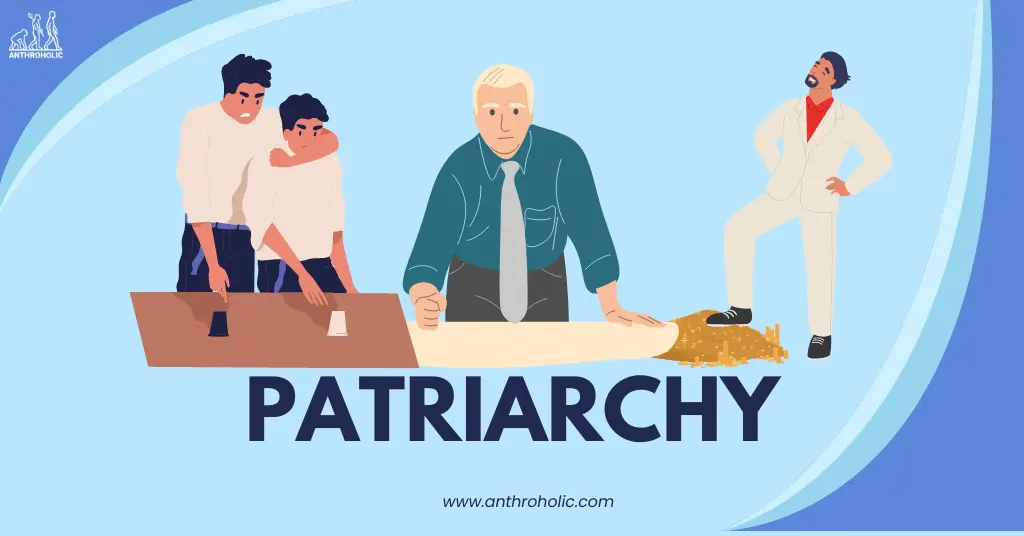Patriarchy

Patriarchy is a social system in which men hold primary power and dominate in roles of political leadership, moral authority, social privilege, and control of property. It's characterized by the systemic subordination of women and marginalized genders in various aspects of society, including politics, economics, culture, and family life.
Key features of Patriarchy Include:
Male Dominance: Patriarchy centers on the idea of male dominance and authority, with men occupying positions of power and decision-making authority in society.
Gender Inequality: Patriarchy perpetuates gender inequality by systematically privileging men and disadvantaging women and other gender minorities. This can manifest in various forms, including unequal access to resources, opportunities, and rights.
Gender Roles: Patriarchal societies often uphold traditional gender roles that prescribe specific behaviors, expectations, and responsibilities for men and women. These roles are typically hierarchical, with men expected to be dominant, assertive, and breadwinners, while women are expected to be submissive, nurturing, and focused on domestic duties.
Structural Oppression: Patriarchy operates through structural systems of oppression that reinforce and perpetuate gender inequality. These systems can include laws, policies, cultural norms, and institutions that uphold male dominance and privilege.
Intersectionality: Patriarchy intersects with other forms of oppression, such as racism, classism, ableism, and homophobia, creating overlapping systems of discrimination and marginalization that disproportionately affect women of color, LGBTQ+ individuals, and other marginalized groups.
Critics of patriarchy argue that it perpetuates harmful stereotypes, restricts individual freedom and autonomy, limits opportunities for women and marginalized genders, and contributes to various social injustices and inequalities. Efforts to challenge and dismantle patriarchy often involve advocating for gender equality, challenging traditional gender norms, promoting women's rights, and addressing the intersecting forms of oppression that contribute to gender-based discrimination and inequality.
Thank you,